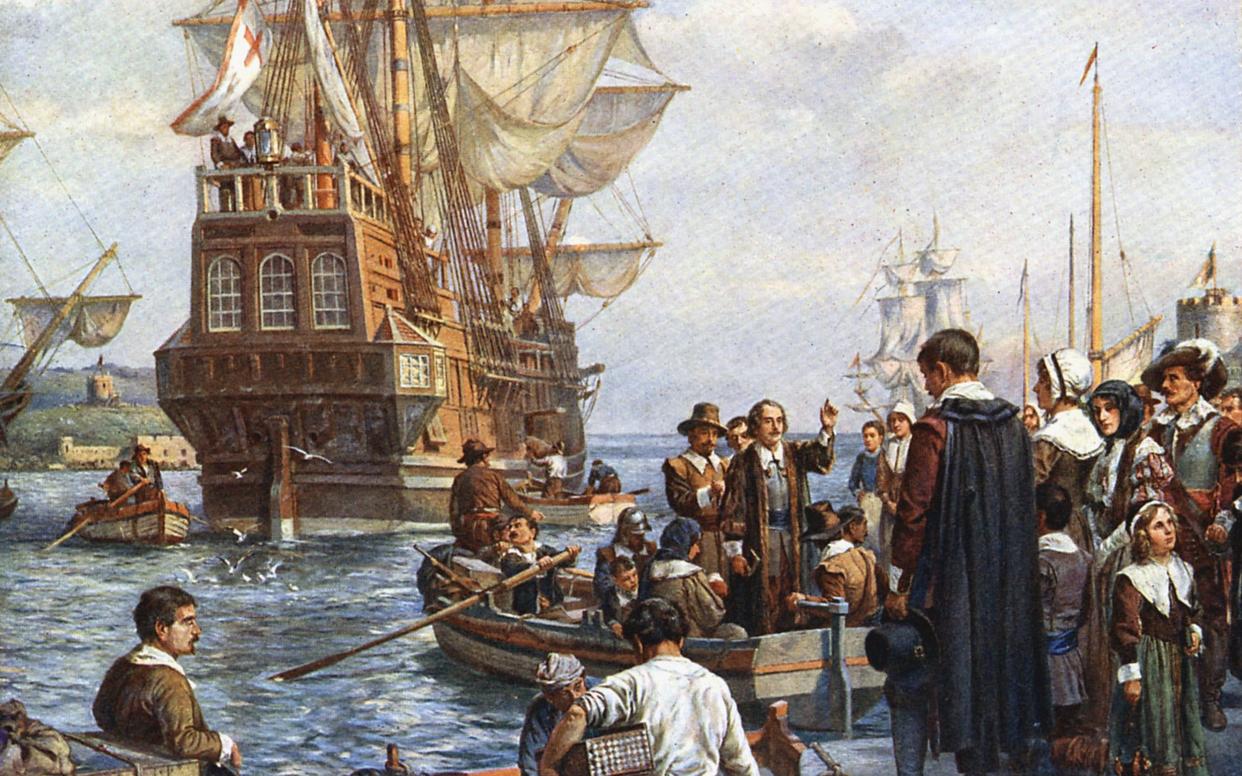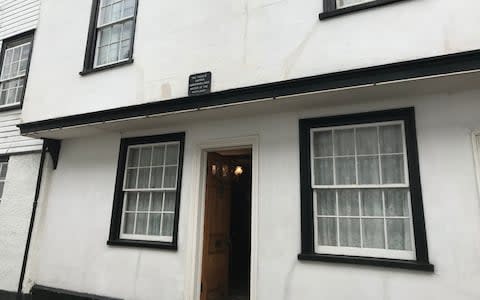Essex tries to reclaim Mayflower and attract American tourists by opening captain's house to the public

Essex is launching an attempt to reclaim the history of the Mayflower and attract American tourists to the county by opening up the captain's house to the public.
The Mayflower set sail from Plymouth in the UK to the New World in 1620, carrying the Pilgrim Fathers to North America, but the ship was registered in Harwich in Essex, where the man who led the journey, Christopher Jones, was born.
The famous voyage’s history is commonly associated with Plymouth in the UK, after its US landing site was named Plymouth Rock which later developed into the town of Plymouth, Massachusetts.
But now a district council in Essex wants to “re-cement” its links with The Mayflower after being “lost out of the story”.
Harwich was where the Mayflower was registered, according to historians, and its captain Christopher Jones once lived in King's Head Street in the town before he died in 1622.
Now his former home is being leased by Tendring District Council and will open to the public for the first time next year, 400 years after the ship's voyage.
A significant part of the property has already been restored to its original features, the council said, and work would start to make it accessible and allow it to hold exhibits.
Mike Carran, head of sport and leisure at Tendring District Council, said: "I think the beauty of this is, if Harwich has been lost out of the story to some degree in the US, this is the opportunity to re-cement those links."
The ship first arrived in the US in November 1620 with 120 passengers on board. The first person to step ashore at Plymouth Rock was Harwich barrel-maker John Alden, whose descendants are said to include Marilyn Monroe and Dick Van Dyke.

David Whittle, vice chairman of the Harwich Society local history group, said: "I don't want to decry Plymouth in any way. They are part of this thing."
But he said it was only by chance that the Mayflower went to Plymouth, after an accompanying ship sprang a leak and they both turned back.
If this had not happened "Plymouth wouldn't have come into the equation", he said, adding: "If that hadn't happened and the two ships had gone across there, would there be Plymouth Rock?"
He said that "people in America don't know about Harwich" and that visitors are "absolutely astounded" when they are told.
A new visitor centre is being created in Harwich, and images will be projected onto Captain Jones's house on Friday as part of an international Mayflower 400 opening event called Illuminate, involving locations connected with the Mayflower.
More than 30 million people can trace their ancestry back to the 102 passengers and about 30 crew of the ship, according to the Mayflower 400 website, which was established ahead of the anniversary year.

Earlier this year, Plymouth faced another rival claim after a retired policeman suggested the journey actually began from a Cornish seaside port.
Historian John Chapman said he had found new evidence that The Mayflower in fact left from Devon's neighbouring county Cornwall.
Mr Chapman said research proved the ship stopped for fresh water in Newlyn as it headed for the New World - a theory long held by residents in the Cornish seaside port.
He claimed the truth was uncovered by a respected librarian who died in 1989.
However Luke Pollard, who was elected the Labour MP for Plymouth Sutton and Devonport in 2017 and is standing in next month's general election, said he was not worried about Plymouth’s historic claim to fame.
Speaking in March, Mr Pollard said: "The documentary evidence that Plymouth was the last English port the Pilgrims stopped at before their long voyage to America is considerable and so I don’t fear our claim is at risk."

 Yahoo News
Yahoo News 